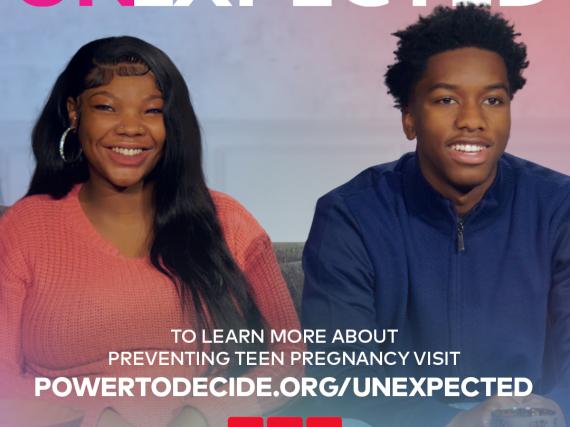Improving Reproductive Well-Being of Transition-Aged Youth Through One Key Question
When young people get pregnant on their own terms, they face fewer challenges in achieving their educational and career goals, and they are better prepared for the demanding task of parenthood. Although there has been tremendous progress in reducing rates of teen and unplanned pregnancies over the past two decades, the progress is uneven, and stark disparities remain. Rates of unplanned pregnancy are much higher among young women who are or have been involved in the child welfare system than among the general population. Youth in foster care are about 2.5 times more likely to be pregnant at least once before they turn 19 compared to teens not in the system, and a staggering 77% of young women who have been engaged with the foster care system experience an unplanned pregnancy by age 24, as compared to 40% of their peers. Youth in foster care are also more likely to have a repeat pregnancy than their peers and are less likely to use regular contraception.
Enter One Key Question®.
Power to Decide’s One Key Question® (OKQ) is a reproductive life planning tool for health and social service providers that starts the conversation about if, when, and under what circumstances people want to get pregnant and have a child. OKQ provides a framework for all providers to routinely ask the people they support, “Would you like to become pregnant in the next year?”
Though this is a seemingly simple question, the answers are more complex. OKQ meets people where they are, by offering nonjudgmental support for four responses: yes, no, ok either way, and unsure. Follow-up counseling and referrals are tailored appropriately based on a person’s desire for or ambivalence about pregnancy. OKQ is transformative because it is patient/client-centered and trauma-informed. It focuses on understanding a person’s reproductive goals by using non-binary response options. Follow-up care—inclusive of birth control, preconception care, prenatal care, or referrals to other services—is based on the response to the question. OKQ proactively addresses the root causes of mistimed pregnancies, poor birth outcomes, and disparities in maternal and infant health. It equally supports people who want to become pregnant, those who do not, and those who are ambivalent. This strategy focuses on what people desire rather than intent or how they plan, as research indicates pregnancy planning is not a practice that resonates with all ages, cultures, and backgrounds.
To support and improve the reproductive well-being of transition-aged youth, Power to Decide partnered with United Friends of the Children, an organization based in Los Angeles, CA that helps current and former foster youth transition to adulthood through housing and educational services. As a result of this partnership, OKQ was implemented into United Friends of the Children’s Pathways Program where it is fully integrated into their intake process. Additionally, through this partnership we also worked with United Friends of the Children to incorporate OKQ as a part of the six-month housing stability plans for all participants.
Through this partnership, we conducted key informant interviews with staff at United Friends of the Children to identify key success and challenges and lessons learned from this program. Through these interviews, all key informants who completed the training expressed satisfaction with their experience and particularly appreciated that it was online and self-paced. One respondent even noted that participating in this partnership helped her to better understand her organization’s goal.
At Power to Decide we recognize that sexual and reproductive health is often de-prioritized as part of social service programming. This overarching finding highlights a clear need for continued efforts to transform the norms of social service provision so that integration of sexual and reproductive health services is seen not as a competing priority but one that aligns with and furthers the social service mission.



